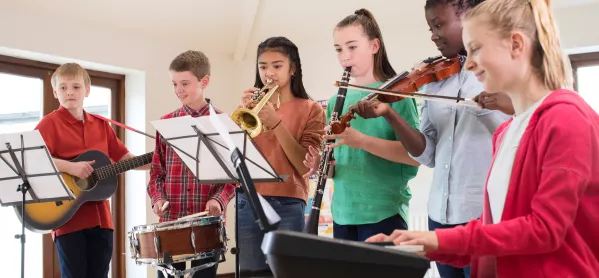Young people from deprived areas are less likely to take music A level than their better-off peers.
Sixty per cent of A-level music entries come from schools in more affluent postcodes where a high proportion of 18-year-olds study at university, according to research by Birmingham City University.
Research: ‘Music should be the beating heart of primary’
Curriculum: ‘Swapping Mozart for Stormzy boosts literacy and numeracy’
Quick link: Music lessons should be free, says education secretary
The university’s report, Geographical and Social Demographic Trends of A-level Music Students, was commissioned by the Royal College of Music and the Royal Academy of Music, and looked at demographics and uptake of A-level music over five years.
It says that independent schools accounted for a disproportionately high number of A-level music entries, and more than 20 per cent of all entrants came from only 50 schools.
‘Alarming’ decline in A-level music
The subject’s small class sizes - an average of just three pupils - pose a threat to the qualification because schools might find it hard to justify investing in music for such small numbers, the report says.
The most deprived local authority areas tend to enter the fewest students for music A level.
Researcher Adam Whittaker said: “The significant decline in A-level music is extremely alarming.
“It is deeply worrying that students in the most deprived local authorities are not able to study A-level music, while other more affluent areas see high numbers of entry.”
An earlier study by the university found that music education can help to keep disengaged young people in mainstream schools.
Victoria Kinsella, who was involved in both research projects, said: “We know how important music education is, both for those who want to pursue a career or further study in music and young people who may not be engaging with the curriculum.
“These findings highlight a concerning trend. Music education should be available to everyone, regardless of where they live.”





